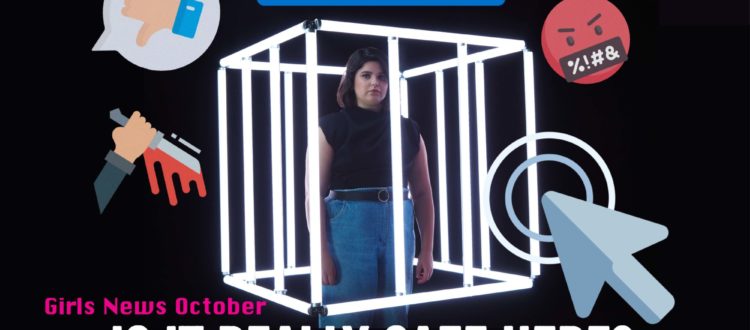October 2020【Is It Really Safe Here?】
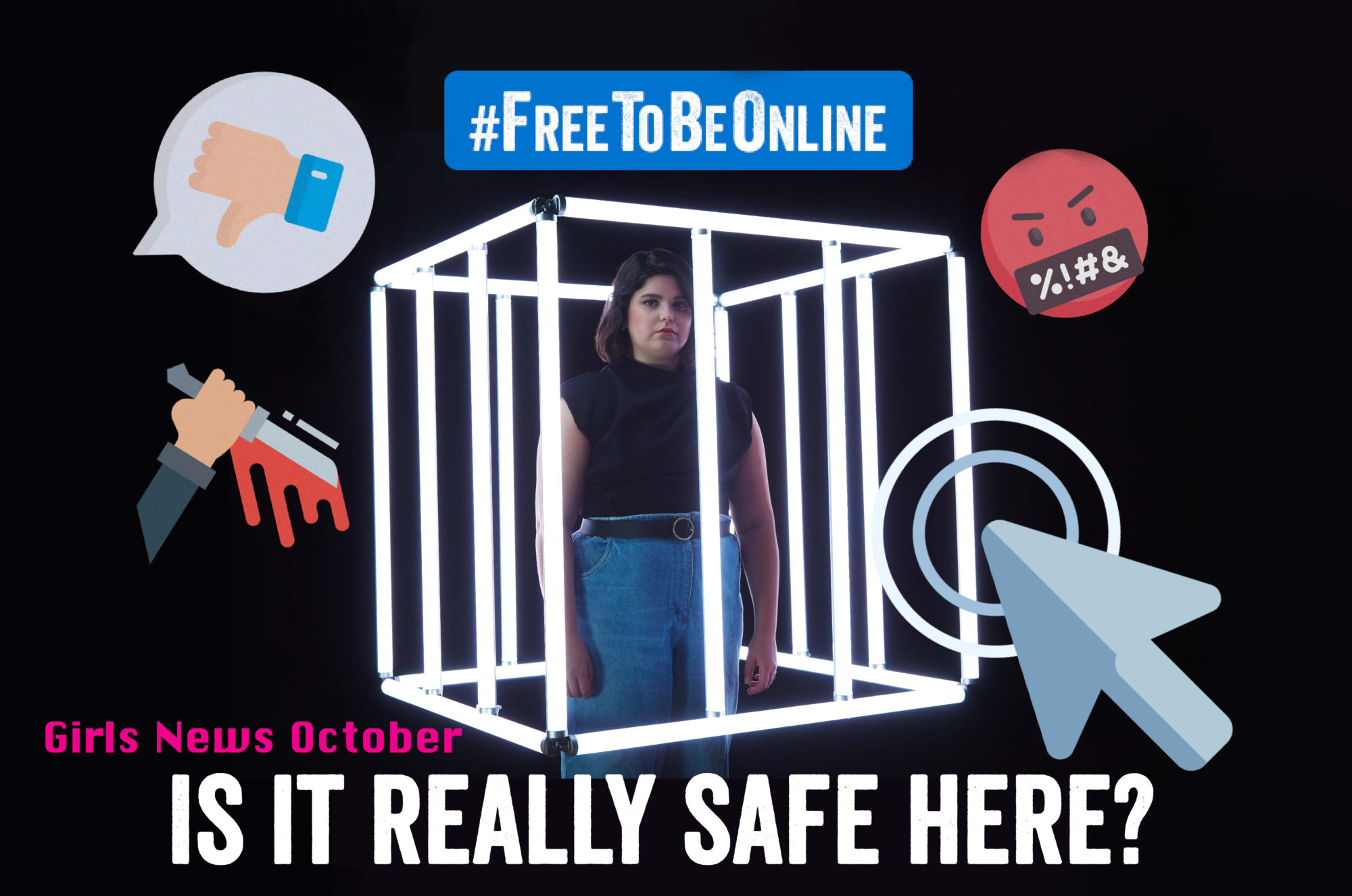
Almost 60% of Girls Experienced Online Harassment
Girls Demand Immediate Action
Let’s take a quiz!
- Are you a female? Yes (10 Points) No (0 Point)
- Are you young? Yes (10 Points) No (0 Point)
- Have you ever expressed your opinion online? Yes (10 Points) No (0 Point)
- Do you have any disability? Yes (10 Points) No (0 Point)
- Are you black? Yes (10 Points) No (0 Point)
- Do you consider yourself a member of the LGBTIQ+ community? Yes (10 Points) No (0 Point)
What’s your score in total? We always aim for high scores in tests and exams; yet, getting more points in this quiz might not make you happy! It is a quiz regarding your safety. The higher the score, the more likely you are going to be online harassed or attacked. It is a digital era and we use cell phones all the time. However, we seldom recognise the threats that would be brought by this little device. The fact is, online harassment is very common that either our friends or ourselves would have been the victim at least once before.
We May Not Realise These Are Categorised as Online Harassments
“Fat!”, “Slut!”, “Go to hell!”, “How much is it for a night with you?” We must have seen these wordings on the Internet before. People are usually crueller and meaner when they go anonymous. Little do we think of the impacts of these comments and messages that may destroy a little girl who just wanted to share her life online? It is happening every day in our real life. The harassment takes forms of abusive and insulting languages, body-shaming, threats of violence and more. Have you ever encountered them?
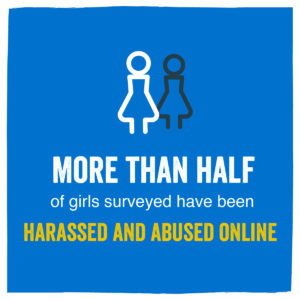
The latest global research by Plan International has surveyed 14,000 girls from 22 countries and revealed that about 60% of the respondents have suffered from some forms of online harassments, attacks or abuses only because they are female, outspoken, disabled, black or identified as LGBTIQ+.
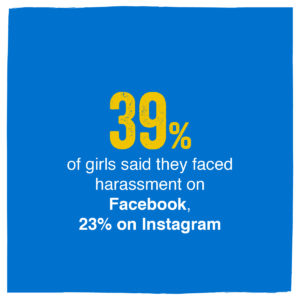
Among the girls, nearly 40% faced harassment on Facebook, following by Instagram (23%), WhatsApp (14%), Snapchat (10%), Twitter (9%) and Tiktok (6%), which are all popular social media platforms in Hong Kong.
Online harassment is not unique to foreign countries. Hong Kong people are familiar with the idea of seeking or being anonymous ‘internet judges’ and taking sneak shots of random people on the streets for netizens to comment on their looks and behaviours. It is not only immoral, but also traumatising to the victims. We have to raise public awareness of this issue and protect the disadvantaged groups, like girls, in society.
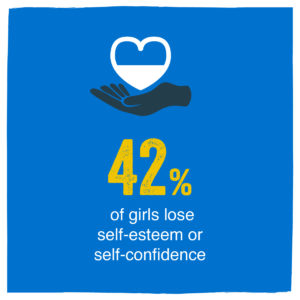
Nadiuska, a 19-year-old Plan International’s girl ambassador from Nicaragua, stood up for her friend who was under online harassment. She had no idea that would give her the name of ‘Feminazi’, a pejorative term for feminists, and attacks from other netizens. Recalling this piece of her memories, Nadiuska can still feel the pain. “After that, I went to psychological consults and I had to take medications and sedatives to calm down.” She said. 42% of online harassed and abuse victims lose confidence in themselves or suffered from emotional distress, 20% had to abandon social media platforms permanently, 18% started to have problems in school and 12% changed the way they present themselves.
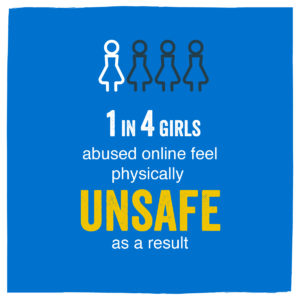
“Can’t you just log off?” some may ask. The reality is online harassments do not stay only online. It invades your private life and you have nowhere to escape. A Sudanese girl, whose name is protected, said “the men threatened me to send them my nude pictures, otherwise, they will edit my photos in a bad way and send them to people around me.”
Other than pornographies, predators claim to sexually abuse, rape, beat up or even murder the girls in real life as well. “He said he is coming for me. He will rape me and kill me!” another girl said.
Imagine. You have logged out, switched off your laptop and returned to your bedroom. You try to relax but all you can think of is a person who threatens to send inappropriate pictures to your parents or watches you through the window. Your home doesn’t feel safe anymore. How terrible will it be?
No More Silence, Girls are Confronting the Issue!
Under the existing reporting mechanism on social media platforms, girls have no way to seek help or protect themselves except for blocking and reporting the accounts. Moreover, the reports are not handled case by case and often being swept under the carpet. The abusers can always create a new profile to harass the victim again, which is an endless battle.
The general public has been turning a blind eye to the issue for so long and girls from all over the world have decided to break the silence and be more proactive in creating a safer online environment for themselves and other internet users.
Plan International encourages girls to take the lead as advocates. Now, the girls have written an open letter to major social media platform companies, asking them to step up, shoulder their social responsibilities, educate the public on proper manners online, as well as setting up a stricter reporting and security system that have deterrent effects. More than 50,000 have already joined the petition.

Cathy, girl ambassador from Uganda, suggests social media companies to completely block people who violate the regulations and ban the use of fake or stolen photos to create profiles so that girls are more protected and they can safely exercise their rights to access internet resources.

Zeinab, 19-year-old from Giza, Egypt, thinks the companies should run a 24-7 hotline for the victims to report the cases and get follow-ups.
No More Time, Act Now!
Social media companies should be responsible for combating online harassment. However, girls are now taking their duty instead. We can waste no more time on it as new victims appear every minute!
Under COVID-19, schools are closed and students rely on the Internet for remote learning. It exposes them to potential threats on these social media platforms. At this point, we have known that there is an increasing number of online gender-based violence cases in many countries. Since the pandemic started, eSafety Commissioner of Australia has recorded an increase of 50% in cyber-crime cases monthly. Somehow, it is not hard to picture the situation in developing countries with less education on the issue and absence of hotline services. Threats are approaching and we have given girls no shields at all. Actions need to be taken right now!
There is definitely no doubt that social media companies have to bear the responsibility; nevertheless improving the social atmosphere is the key. Governments should implement new laws or revise existing regulations on online harassments and pour more resources onto building public awareness and providing education regarding appropriate online culture. They can fund and run service hotlines and task forces that dive down into the causes and solutions to local online harassment issues.
What about us? We can step into the victims’ shoes, think twice before we act, report without hesitation when we witness or suspect online harassments and abuses, and give a helping hand to the victims by encouraging them to speak up. We should never blame the victims, regardless of their gender, races, beliefs, stances and the way they dress or express themselves. We have to respect one another and no one ‘should’ or ‘deserve’ to be harassed, attacked or bullied. If every one of us can take a step further, we provide an additional layer of protection to girls to freely access the learning resources online. Would you take this chance to share the news with your friends and families and help put an end to online harassments?
